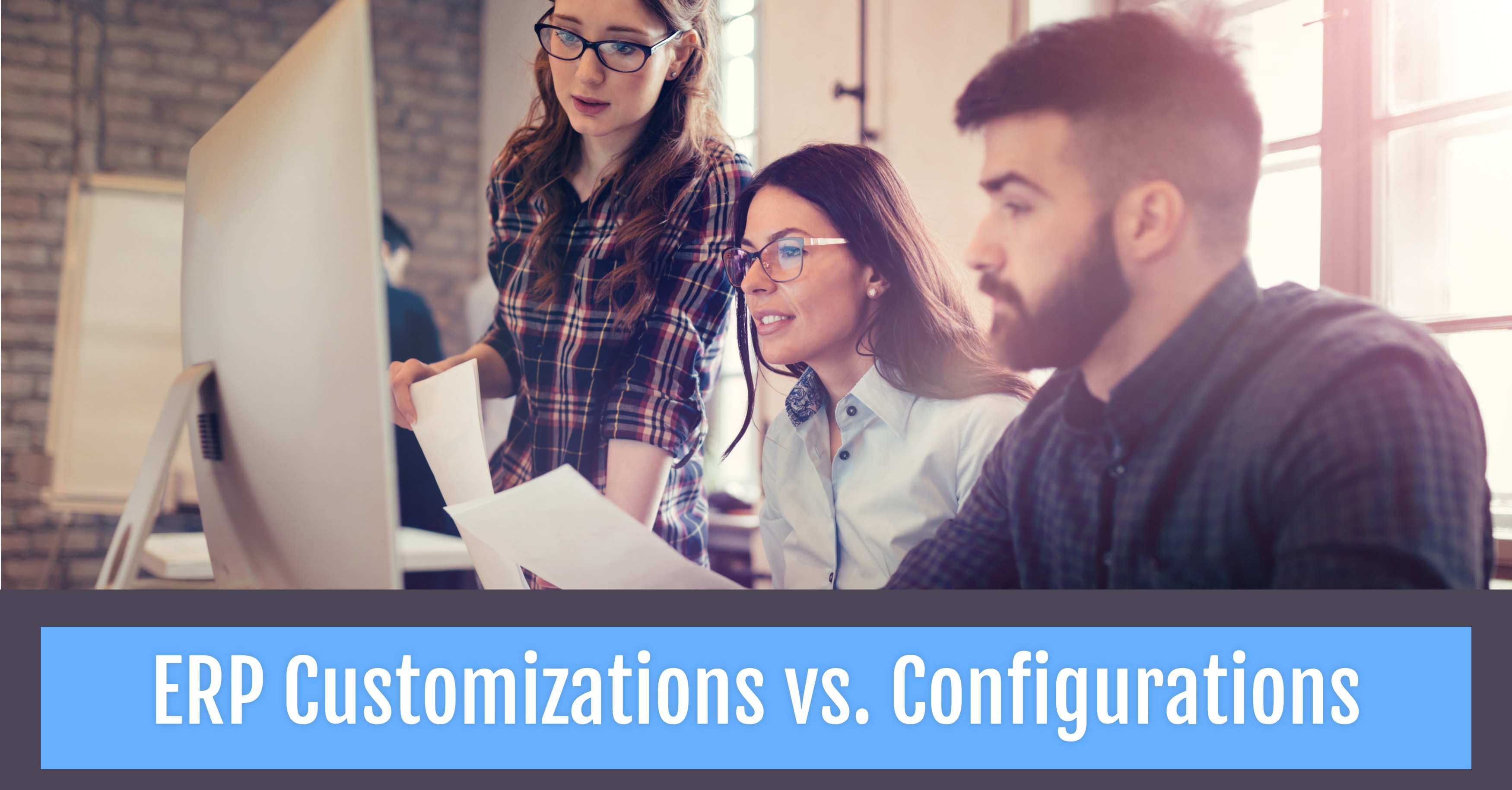ERP Customizations vs. Configurations
It’s often the case that clients will need to make changes to their software. After all, every manufacturing and distribution enterprise is different. However, contrary to popular misconceptions, these changes don’t necessarily take the form of customizations. In fact, our ERP consultants recommend that you opt for as little customization as possible in an effort to save time and money. More often than not, businesses can make necessary modifications to their software by making configurations.
So, what’s the difference between configurations and customizations? Below, we distinguish between the two and help you determine your next steps to make your ERP instance fit your business needs.
Definitions
An enterprise that ends up with a rigid ERP system is often compelled to undergo customizations. Customizations involve custom coding in order to add new functionality to the software. Configurations, on the other hand, are methods of changing data fields, workflows and other settings without touching the base code. ERP platforms built on flexible architecture enable configurations. Epicor, for example, is constructed on service-oriented architecture (SOA) to allow easy configurations that make your ERP system adaptable to unique business needs.
Price and Complexity
The key differentiators between configurations and customizations are price and complexity. With each ERP customization, your business creates a bottomless money pit. The complexity of customizations requires an immense team, and getting the software up and running will take considerably more time, causing projects to become delayed and over-budget. But that’s not all. Customizations require robust maintenance, meaning more dollars spent on internal resources. Worst of all, when customizations go too far, they can make upgrades convoluted or even render your system completely useless.
Sure, there are businesses out there so specialized and endowed with such immense resources that a fully customized instance is not only feasible but a necessity. Modest companies, however, will quickly exhaust their funds if they take on too many major changes. ERP configurations optimize your software without requiring a vast IT team dedicated to caring for the software 24/7. By taking advantage of Epicor’s flexible architecture and ample features available off-the-shelf, businesses can modify their instances without hurting their wallets or burdening their IT teams.
Wrap Up
Even with a system as powerful as Epicor ERP, some sort of modification is usually vital to strengthen specific business processes. When determining whether to go the customization or configuration route, it’s important to weigh the pros and cons and always focus on what’s best for your business.
To drive ERP success, team up with Datix. Datix is an Epicor Platinum Partner, making us a top consulting firm, especially when it comes to optimizing Epicor for each of our clients. Plus, as a one-stop shop for enterprise software, we can also guide CRM, eCommerce and integration projects. Whether it’s a small modification or full customization, we’ll do whatever it takes to get your software working to fulfill your needs. Find out more about our solutions and services by reaching out to Datix today!
{{cta(‘770c1544-d87d-4acb-9fc4-7a25e1385094′,’justifycenter’)}}


